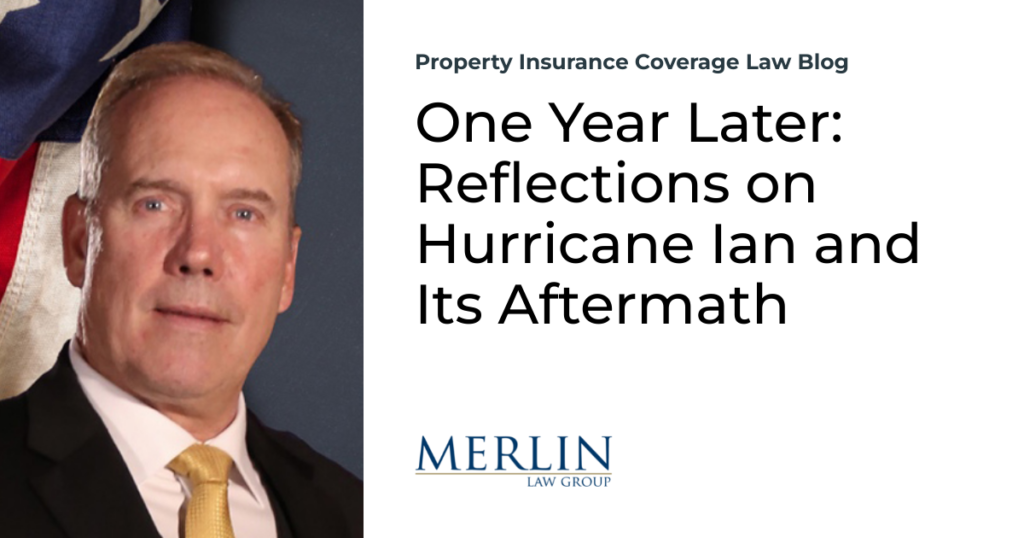One Year Later: Reflections on Hurricane Ian and Its Aftermath

Note: This guest post is by Doug Quinn, American Policyholder Association Executive Director.
Hurricane Idalia swept through, leaving behind its legacy. In its wake, Maui grappled with fires, Hurricane Lee stirred the Atlantic, the stock market experienced fluctuations, and political factions continued their age-old dance of rivalry. While seasons transitioned and we near the anniversary of Hurricane Ian, the nation’s attention has shifted.
Yet, for many affected by Hurricane Ian, the traumatic memories remain palpable. Distressingly, the Florida Office of Insurance Regulation has been silent on claim statistics for this disaster since June—a three-month hiatus that beckons for transparency.
As per the last available data, almost 200,000 insured survivors with damaged homes received no payout. Zero. Having diligently paid premiums for years, these policyholders are grappling with agonizing delays.
The insurance industry’s response and irony is stark: delay claims indefinitely, yet promptly cancel policies for late premium payments. So, where’s the accountability for late insurance payments? And what about insurers using third-party administrators or engineering firms that may be producing deceptive reports? How about those insurance companies that collect premiums only to declare insolvency and shift the burden onto the taxpayers?
Where do policyholders turn if regulatory bodies like the Florida Division of Financial Services or the Office of Insurance Regulation falter in addressing these concerns?
Enter the American Policyholder Association (APA)—the pioneering body dedicated to addressing, vetting, and reporting instances of insurance fraud. Thanks to the APA, insurance industry whistleblowers have found a voice, revealing deceitful strategies to minimize payouts to disaster survivors.
How can you bolster the APA’s efforts? Here’s how:
Join the APA. Your membership amplifies our voice. Membership is free for consumers, while professionals contribute dues to fund our mission. If you’ve been helped by an APA-affiliated claims advocate or restoration professional, a simple “thank you” goes a long way.
Speak out. Contrary to the industry’s narrative that all fraud targets insurance companies, deceit permeates every facet of the claims process. Unfortunately, legal actions often seem tilted in favor of the insurers. APA has received multiple complaints of insurer-appointed engineers and third-party administrators possibly compromising policyholder claims.
Document and retain evidence. Fraud, at its core, is deliberate deceit for financial gain or loss prevention. Many Hurricane Ian survivors can attest to feeling shortchanged. If you suspect fraud, submit your findings to the APA’s Consumer Protection Unit.
Advocate for action. Urge entities like the DFS, OIR, State’s Attorney, and Attorney General’s office to act on fraudulent practices and prevent their recurrence.
Vote wisely. Some officials might be influenced by insurer campaign donations. Remember those who genuinely supported the survivors when casting your vote.
Remember, while life has resumed its pace elsewhere in America, the Hurricane Ian zone remains trapped in time. Each day, someone battles trauma, anxiety, depression, or addiction from this disaster. Some have even tragically taken their own lives. Feeling isolated after facing a catastrophe and confronting an indifferent insurance behemoth can be daunting. However, know that the American Policyholder Association champions your cause daily. You are not alone.







